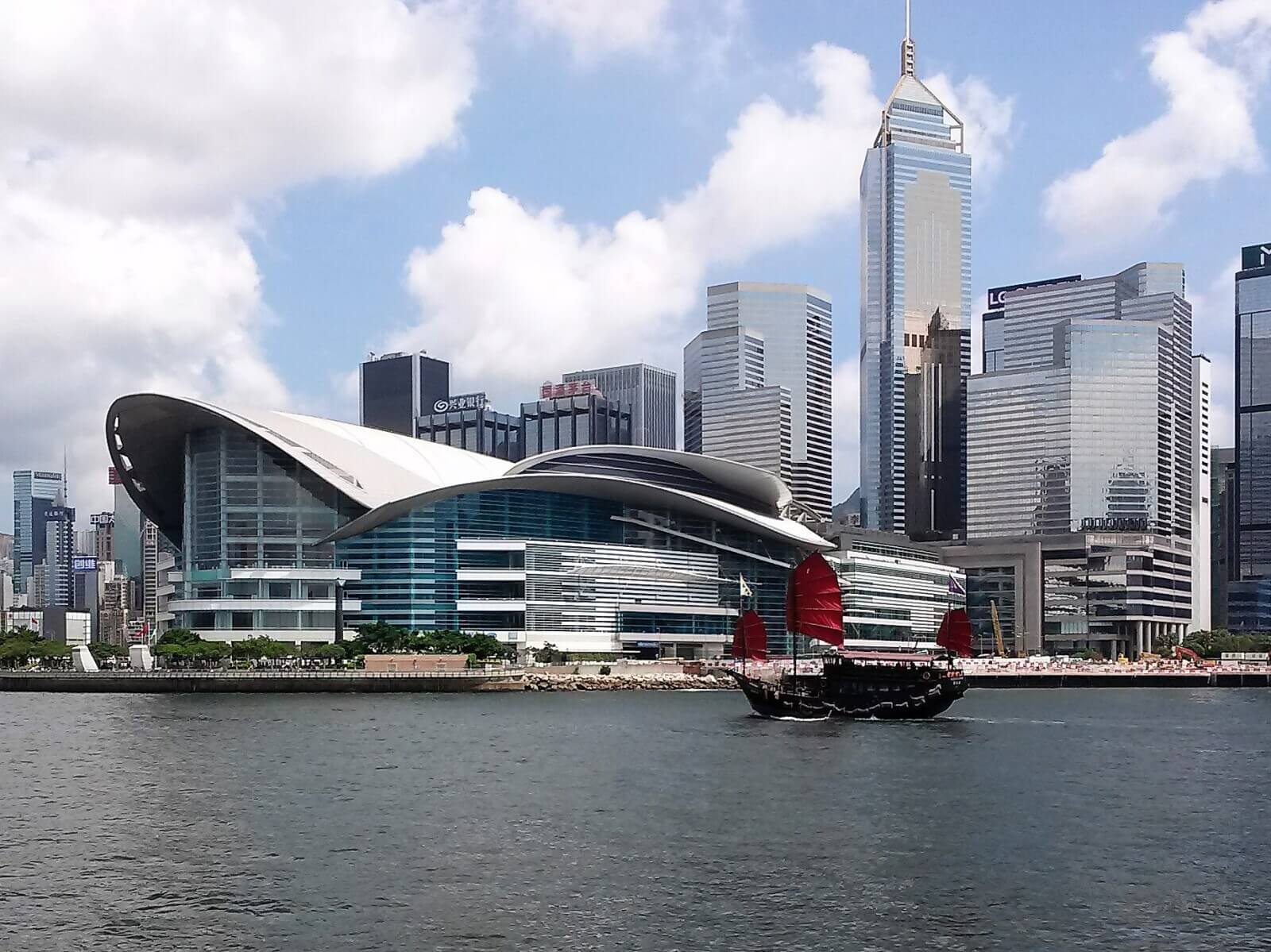When you’re looking for that perfect car or your dream house, you don’t buy the first one that comes your way. In the same vein, a lot of time and thought are spent in finding the right destination for a meeting, conference or incentive, as it is a choice that could spell success or failure for your event.
According to Padraic Gilligan, vice-president for industry relations at MCI Group, there is a pre-selection process during which as many as 15 destinations may be under consideration. "During this initial research phase, criteria such as frequency of air access and availability of hotels at the right level may be used to narrow down the destinations under consideration to three.
"At this stage, he continues, the destinations may be ranked in accordance with a balanced scorecard, and a site inspection undertaken to the destination ranked highest. This process can take up to one year."
Do your research
With the internet at everyone’s fingertips, this is usually the first place most companies go for information. Many events professionals, however, frown at this practice. "Relying on internet knowledge is a mistake," says Bruno Simoes, chief executive of DOC DMC based in Macau. "You are never sure whether you’re getting the right information. Call the tourism board – a 10-minute talk can yield so much more than the same amount of time surfing online."
Steven Smith, senior director of meetings & events, Asia-Pacific at Carlson Wagonlit Travel agrees: "Websites can be deceptive so organisers need to make sure that they have thoroughly evaluated destinations first-hand before making any recommendations."
According to Smith, evaluating destinations is a complex process that often takes as long as three months before firm decisions can be made. A key component in the process is conducting a comprehensive site inspection. "We find that on-the-ground research is increasingly important in order to make properly informed decisions. We spend a lot of time gaining first-hand knowledge of the facilities and services available to our clients."
He adds that it is often not enough to just do a quick tour around a hotel or convention centre. Professional organisers really need to spend time in the destinations that they recommend and check all the details in advance. "After all, every element of the trip contributes to the overall event experience," Smith says.
MCI’s Gilligan adds more food for thought: "There are many challenges, but most of them can be neutralised by conducting a full site inspection of the destination one year prior to the event, so that you experience the destination at the precise time and seasonality of the live programme.

Access and cost
With the majority of companies tightening their belts, many events experts find that, after all things are taken into account, the choice of destination boils down to two things: access and cost.
Jowyn Tan, project manager of Universal WorldEvents, notes that where destinations are concerned, the emphasis is now more on looking at smaller local and regional activities as opposed to global ones. "We organise a large number of events for global delegates,î Tan says. ìFor these non-domestic events, a key consideration for selecting a destination is ease of access. For this reason, destinations with hub airports tend to be the first options considered.
Other things that are factored in include delegates’ flight times; a destination’s infrastructure such as motorways and rail links; variety and number of hotels and cost; and restaurants, venue and activity options if there is an external element to the meeting. ìObviously, it is vital that the destination and venue programme all meet the business objectives for each event and offer the client a return on their investment," Tan says.
A simple one-day programme is much easier to source for than a 1,000-person event over the course of a week. "We will always ensure that we thoroughly examine the client brief to factor in all their requirements before conducting an extensive venue search, taking in key considerations like star rating, size, suitability, location, etc," Tan explains. "Once we receive the responses from venues, we then examine these thoroughly to make sure all responses capture our key requirements before short-listing options to present to the client."
Simoes of DOC DMC Macau points out that the cost of attending an event in a particular destination in many cases affects the number of delegates. "In choosing destinations, hosting companies take note of the history of the event as they would not want to repeat destinations. In cases like this, mainstream destinations are taken off the shortlist. Especially if they are charging for the event, the destination’s appeal is crucial to attract attendance.
"Often, a country’s attractiveness is all down to cost. An event that typically numbers around 5,000 participants can have that number cut in half when it is hosted in a country like Switzerland, while an event can double its number from the average 60 to 120 people when it is held in a place like Bangkok."
Assistance and support
Gene Capuano, vice-president of convention and exhibition operations at The Venetian Macao, advises that event organisers should look into MICE subsidy schemes being offered by a number of destinations. These schemes can help them stretch their budgets. "Each company or association has diverse business reasons and goals for holding the meeting to start with, whether it be increased membership in that region, or achieving high delegate numbers," he says.
A local convention bureau or tourism organisation is an invaluable resource in this case, providing information about existing programmes aimed at encouraging event organisers to hold their conference in their respective city.
"The Macau Special Administrative Region Economic Services launched the enhanced ‘Convention and Exhibition Stimulation Programme’ this month, as part of its effort to promote the development of the MICE industry in Macau," Capuano says. "This new programme provides assistance and support to organisers and planners for events in Macau."
Indeed, event organisers can find plenty of government support from business event bodies of emerging Asian destinations such as Malaysia. "We provide a range of services to support convention and conference organisers," says Zulkefli Haji Sharif, chief executive of the Malaysia Convention and Exhibition Bureau (MyCEB). "We offer bid support, site inspections, product and service selection, planning advice, event promotion, itinerary development, government liaison and onsite support."
However, he adds that, "it is best that organisations which are planning events look at the destination as a whole instead of concentrating only on cost".

Other considerations
For Universal WorldEvents, a healthcare meeting and events specialist, organising an event for a company that belongs to a niche industry has another set of considerations. "Compliance and regulatory issues can also be a challenge when the meetings involve healthcare professionals, because meeting spend and perception is highly regulated in the industry," says WorldEvents' Tan – it is a well-known fact that resort destinations are often off the list for pharmaceutical clients, lest it be misconstrued that the event was an incentive trip masquerading as a medical seminar.
Gilligan of MCI also notes that key criteria for evaluating destinations can change with the times. "Different geopolitical and economic realities cause different individual criteria to be more or less important. In the immediate aftermath of the terrorist attacks of 911, for example, issues regarding geopolitical stability and security were paramount. In strong economic times, the ‘wow’ factor becomes central. Now, in a time of austerity, it is all about price," he says.
Mass appeal
The point has been made that the strong appeal of a destination among an event’s prospective attendees should be one of the main factors in choosing a country where a company’s next offsite event will be held.
"Ultimately, the recommendation needs to begin and end with customer satisfaction, so we use this as our guiding principle," says Smith of Carlson Wagonlit Travel. "We place the emphasis on universal appeal to delegates, because unless we meet that requirement, a strong business case alone is unlikely to make for a great event experience."
Tan of Universal WorldEvents agrees. "Destinations that appeal to delegates are usually the best options for the end client," she says, although she also points out that places that are more geared to MICE events tend to have plenty of venue options at all ends of the budgetary scale. "As budgets are so important, countries that can provide a wide range of options tend to be popular with both delegates and clients."
Capuano of The Venetian Macao, meanwhile, cautions event organisers from making a common mistake by letting their own personal preference sway their decision "without taking a consensus report from the attendees, especially from past meetings of the same type".
He concludes that, "a lot of organisers think of the locations that ‘sound great’ before they analyse what type of property or destination can house their specific type of event. In many cases, for larger groups you may have to sacrifice a destination choice for a venue choice, if it makes sense for the specific type of meeting you want to hold".
INSIDER VERDICT
Steven Smith, senior director, meetings & events, Asia-Pacific, Carlson Wagonlit Travel
"In the current economic climate, it often comes down to a straight trade-off: budget versus objectives. Companies understandably have high expectations but budgets are often not sufficient to meet all of these desires. This requires some creative planning from our side but also some compromises from the clients."
Padraic Gilligan, vice-president for industry relations, MCI
"It would not be a good idea, for example, to stage a serious business or education event at a resort renowned for leisure activities or for partying, despite the fact attendees might find the resort more appealing. Corporate reputation and public perception are crucially important and should always be prioritised over the mass appeal of a destination."
TOP TIPS
• Take into account travel time and time difference when international delegates are in attendance
• Prepare for currency fluctuations
• Prepare for personnel changes at the hotels and venues
• Inquire about festivals, holidays, road works and renovations that might happen during the operation of the live performance
• Use the DMC as your eyes and ears on the ground in the destination
SIX BASIC CRITERIA FOR DESTINATION
• Air access
• Local infrastructure: hotels, venues, convention centres
• Overall destination perception and appeal (wow factor)
• Local destination support structure – CVB, tourist board, DMCs and PCOs
• Geopolitical stability
• Price/value matrix
Source: MCI Group
Top Asia-Pacific destinations
• Singapore • Malaysia • Thailand • South Korea • Vietnam • Hong Kong • China
• Macau • Japan • Australia • India
Gigi Onag


